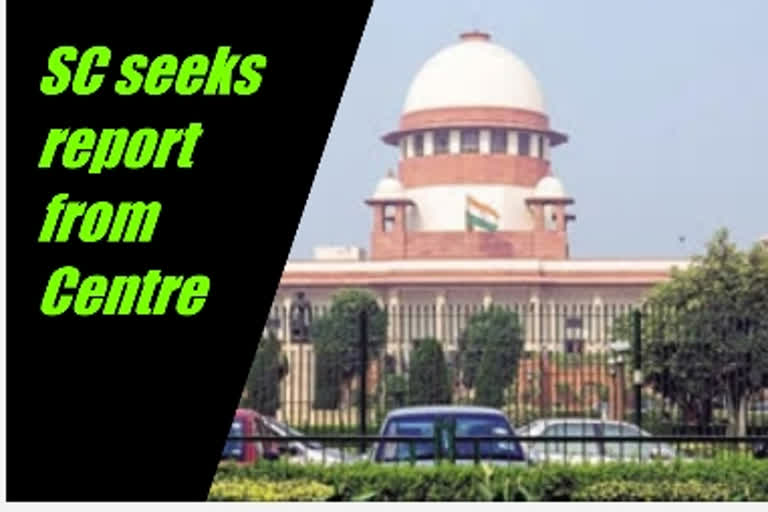New Delhi:The Supreme Court on Wednesday asked the Centre and the Jammu and Kashmir administration to apprise it on Thursday how many public transport vehicles like buses and trucks plied thereafter restrictions were imposed following the abrogation of Article 370 provisions.
The direction came when senior Congress leader and former Chief Minister Ghulam Nabi Azad alleged that the public transport vehicles were not allowed to ply in Jammu and Kashmir which amounted to abrogation of fundamental rights like freedom to move freely and practise business.
The farmers could not transport apples and ailing persons could not go to hospitals for treatment, he claimed.
"Is there a ban on public transportation. Are they not allowing any buses or trucks," a three-judge bench headed by Justice N V Ramana asked, adding, "Tomorrow morning, the first thing you have to tell us, as to how many buses, public transport, trucks have plied in the past days".
Senior advocate and Congress leader Kapil Sibal, appearing for Azad, said "we all support the government on the issue of terrorism", but the issue is, can the lives of seven million citizens be "paralysed" and their fundamental rights, instead of being restricted, be abrogated altogether.
"A person, who had to take the chemotherapy dosage, could not go the hospital. Hospitals are open, but how do I reach there. Persons cannot take part in last rites because you have section 144 (CrPC) in place," he said.
"The question is you say that all the seven million people are not terrorist and few of them may misuse the freedom, then how to choose the (terrorist) people," the bench, which also comprised R Subhash Reddy and B R Gavai, asked.
The cross-border terrorism has been going on since the 1990s and the difficulty in finding the miscreants on the part of the state does not mean that the authorities will abrogate fundamental rights of all the citizens, Sibal said.
"Detain them (terrorists), arrest them. Cross-border terror did not start today. Anyone can cross the border. It cannot be reason for shutting down everything on August 5," he said.
The senior lawyer though said that depending upon the fact of each case, the State is empowered to impose restrictions on the fundamental rights which, however, cannot be abrogated.
Azad had moved the top court in September seeking permission to visit Jammu and Kashmir to enquire about the wellbeing of his family members and natives of Kashmir valley.
At the outset, Sibal referred to a constitutional amendment and said the "internal disturbance" was no more a ground to invoke emergency under Article 352 and moreover, the communication blackout has nothing to do with public order maintenance.
The State can take over the business but cannot destroy it and ask its people not to go out of home and not to do their business and practise the profession, he said, adding that Azad has been stopped at the airport several times.
